When it comes to marketing your insurance business, few factors matter more than a well-designed and optimized website. Some 75% of people judge a business based on its website, according to research from Stanford University. Potential customers have become comfortable shopping for insurance online, where they can compare products and prices with a couple of clicks.
Table of Contents
In this environment, your website has a heavy load to carry. Your site must convey expertise, inspire trust, answer customer questions, and drive conversions. With so much depending on your website, how much should an insurance website cost?
The cost of an insurance website can vary widely, from a few hundred dollars to several thousand (or tens of thousands) depending on factors including functionality, user experience, customization, and complexity. Using templates to create a DIY website is less expensive than hiring experts, but that savings comes at a cost. Templated websites don’t perform as well for SEO and don’t include ongoing maintenance.
Here’s a closer look at what affects the cost of your insurance website, essential features your insurance website needs, and whether it’s better to use a template or build a custom site.
What Factors Influence Insurance Website Costs?
Functionality, navigation, customization, content, and specialized features are among the factors influencing the cost of your website.
Functionality and user experience
A whopping 94% of users say ease of navigation is the most important feature of a website. A seamless user experience (UX) guides users intuitively through the actions you want them to take. Because over 60% of searches start on mobile devices, responsive design that loads quickly and adjusts to different devices and screen sizes is essential.
Customization and complexity
With more than 411,000 insurance brokers and agencies in the United States, according to IBISWorld data, your website has to stand out from the crowd. Custom-tailored website design and branding differentiate your site compared to a cookie-cutter template. Some 83% of users say they appreciate a website that is attractive and up to date. Customization can incorporate specialized features such as quote calculators or online claims forms. You may also want to integrate your CRM system with your website or incorporate data analytics tools.
Content and copy
Carefully crafted website copy moves prospects down the sales funnel. Content such as videos, FAQs, articles, or blog posts helps demonstrate your agency’s expertise. Authoritative content builds trust; fresh content keeps your website current and boosts SEO. However, adding content adds web pages, increasing your costs.
Can I Use a Website Template?
Website templates typically include five or six basic web pages, such as a homepage, an about page, a few pages describing your product or service, and a contact form. Given their simplicity, website templates are generally not the best option for a complex sale requiring high levels of trust, such as insurance products.
“Do I really need more than a basic website?” you may be thinking. Won’t serious prospects call you to discuss their needs? Not necessarily. Some 65% of consumers aged 30 to 49 and 47% of those aged 50 to 64 bought insurance online in 2023. Customer self-service tools such as chatbots, calculators, and other customer self-service tools are not only desirable for customers but also increase your agency’s efficiency.
Customers won’t call you to discuss insurance if they never see your website. However, website templates aren’t designed for SEO, limiting your ability to attract prospects online. In addition, the cost of adding professional images, website plugins, or specialized themes to your templated website can add up, and you may need to hire an expert to perform routine maintenance.
Once you’ve built your templated website, who will update and maintain it? Users regard sites that are frequently updated as more credible, according to Stanford University. The cost of a webmaster to update your content and manage your site could range from a few hundred dollars per month for a few hours of a freelancer’s time to $6,500 per month for a full-time employee. Expect to pay a similar amount for an SEO specialist to keep your site high in search results.
What to Look for in an Insurance Web Development Company
Partnering with experts to develop your insurance website can save you money, time, and headaches. Here’s what to look for when choosing an insurance website development company.
Experience and expertise
Look for a web development company with deep knowledge of the insurance industry and a track record in insurance industry projects. Neilson Marketing’s chief copywriter has 30 years of insurance industry experience and does a deep dive with clients to create website content (and in some cases, blog content). Our founders have over 30 years’ experience in the insurance industry.
Client testimonials
Testimonials from satisfied insurance industry clients are a good indicator the company can deliver for you, too. Ask for references and talk to other customers.
Customization capabilities
Look for an insurance web development company that doesn’t use templated websites. Customized website design gives you greater control of your content and navigation and can include everything from a custom content management system (CMS) and personalized content to SEO integration that increases organic traffic.
Hosting and maintenance
Once you’ve built your website, who will host, update, and maintain it? Users regard sites that are frequently updated as more credible, according to Stanford University. The cost of a webmaster to update your content and manage your site could range from a few hundred dollars per month for a few hours of a freelancer’s time to $6,500 per month for a full-time employee. Expect to pay a similar amount for an SEO specialist to keep your site high in search results.
Essential Features for Insurance Websites
When evaluating website templates or insurance website development companies, consider how well they can handle the following essential elements of an insurance website.
- Unique content: Outsourcing content creation to an expert web development firm can deliver content that convinces customers and boosts your SEO.
- Optimization strategies: SEO-friendly website design and architecture, plus on-page and off-page optimization techniques, are essential to drive website traffic.
- Fast loading times: A web development company should test your site’s loading times on various devices to ensure a good UX in any environment.
- Secure, stable hosting environment and SSL certificate for data protection: Site security is essential for building customers’ trust when you’re dealing with sensitive data such as payment methods or personally identifiable information. Stable hosting ensures your site is always up and running smoothly.
- Access to analytics: Integrating website analytics allows you to see how well your site is performing so it can be fine-tuned as necessary.
How to Maximize Your Insurance Website Budget
Try these tips to make the most of your insurance website budget.
- Identify essential features: In addition to those listed above, there may be unique features that are important to your agency based on your product lines, target market, and other factors.
- Balance customization and cost: Where will customization deliver the most value, and where can you go with a more “off the shelf” solution? For instance, an agency specializing in complex commercial lines may need more robust content to demonstrate expertise and engage prospects over a long sales cycle.
- Consider the long-term value of the website: Your website may be a big investment, but it’s also a crucial marketing and sales engine. Performing an ROI analysis for any website investment you are considering will help you make informed choices. Factor in ongoing costs of maintenance and site updates; it’s best practice to update your site design every two to three years. Also keep in mind that SEO is a long game, so expect steady progress rather than instant results.
Choose the Right Website Development Partner
Using a template to develop your insurance website may appear cost-effective and easy at first glance. But considering the many elements needed for a successful website, the DIY approach can be penny-wise and pound-foolish.
To maximize your website budget, choose a web development and SEO partner that aligns with your specific business needs. A web development company that combines SEO and technological expertise with deep experience in the insurance industry can work with you to create a website that achieves your marketing goals.
Contact Neilson Marketing for a consultation and free website audit.
About Neilson Marketing Services
Since 1988, Neilson Marketing Services has been implementing innovative marketing solutions and strategies for our clients in all areas of marketing. Contact us today at (866) 816-1849 to put our talent, expertise, and vast resources to work for you. Let’s make things happen, together!
